Confronting our Past through a Distant Mirror:
Reflections on the Holocaust as a tool for teaching about Memory and Justice in South Africa
Participants of the UCT Leadership group outside Oskar Schindler’s factory in Krakow, Poland. Schindler protected Jewish workers from deportation and death, including Tali Nates’s father and uncle.
Introduction
In recent years, we have been amply reminded that “the past isn’t dead. It isn’t even past”. Protests over statues and monuments have broadened debate about what is remembered and what is not. South Africa, along with much of the world, is grappling with how to confront difficult histories.
With this in mind, the Johannesburg Holocaust & Genocide Centre and the Kaplan Centre for Jewish Studies at the University of Cape Town designed a student study tour of sites of Holocaust history and memory in Poland and Germany. How had both societies dealt with difficult pasts and the challenges of living with the legacies of dehumanisation, oppression, and violence? And what lessons could we apply to South Africa?
This exhibition is not a travelogue. Instead, it reflects on how the tour was experienced by a group of young South African leaders. It offers a glimpse into how learning about the Holocaust and its aftermath—as a history, as a warning, and as a demand for self-refection—can add perspective to the past and present in South Africa.
Profiles of the 20 students who participated in the tour

Shannon Cupido
2018: Fieldwork year for his Master’s degree in Social Anthropology.
Present: Working as a freelance writer and a teaching assistant at UCT, he will also be studying in the USA as a Fulbright Scholar.

Cassandra Da Cruz
2018: Final year BSc degree Chemical Engineering.
Present: Full-time business analyst and product owner in financial technology. She has been heavily involved in Covid-19 Vaccine Trials for COVAX.

Mame-Diara Mbaye
2018: Second year BA degree specialising in Law and English Language & Literatures.
Present: Final year postgraduate LLB degree at UCT. She noted that the Study Tour, particularly the focus on the Nuremberg trials and the monuments, has bolstered her passion for law and justice.

Nicole Jones
2018: Studying towards her Honours degree in International Relations.
Present: Working as the Corporate Communications and Marketing Officer for the African arm of several global sports brands as part of Milka Sports, a specialised private equity firm.

Ronel Koekemoer
2018: Started her Master’s degree specialising in Historical Studies.
Present: Finishing her Master’s degree before starting her teaching diploma mid-year. She also works full-time as a researcher, counsellor and piece-worker at Rape Crisis Cape Town Trust, where she is also a counselling coordinator.

Sihle Lonzi
2018: Started his BCom in Politics, Philosophy & Economics.
Present: Elected by UCT SRC as a student member for the 2020/2021 Council Leadership of UCT.

Naledi Maponopono
2018: Completing her Honours degree in African Languages.
Present: After successfully completing her Master’s degree, she had just started her PhD
in African Languages with a specific focus on language policy and implementation in basic education. She has also founded her own business, Inkwenkwezi Nannies and Inkwenkwezi Language Services.

Muziwakithi Maseko
2018: Second year of his BSc in Mechanical and Mechatronic Engineering. He was also playing first team rugby for UCT.
Present: Finishing up his engineering qualification and an active student leader in UCT Campus and Residence life.

Tshegofatso Masenya
2018: Second year of her MBChB degree and was the Student Wellness and Outreach Officer of the Health Sciences Student Council.
Present: Fifth year of her MBChB degree.

Kuhle Mnisi
2018: Studying her Master’s in Development Finance and working as an assistant lecturer in the Management Studies Department.
Present: She works at Secha Capital, which is an impact investing firm focussed on providing human and growth capital to SME’s. Her work entails working on operational support of the SME’s and looking into pipeline opportunities.

Itumeleng Mpofu
2018: Final year BSocsci specialising in Politics, Historical Studies, and Public Policy & Administration.
Present: After completing a Postgraduate Diploma in Library and Information Studies in 2019, he went on to enrol for a Master’s degree in Library and Information Studies and works as a research assistant.

Khululwa Mthi
2018: Completing her Honours degree in African Studies.
Present:Currently doing a Master’s degree in African Studies.
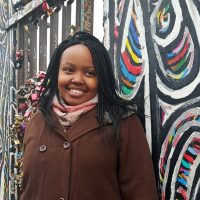
Thando Ndita
2018: Completed her BSocSci specialising in International Relations and Philosophy.
Present: She went on to complete her LLB and is currently doing her articles of Clerkship to become an attorney and works at Norton Rose Fulbright. She is working in Corporate Mergers and Acquisitions but hopes to explore Maritime and Medical Law later this year.

Blessed Ngwenya
2018: Studying towards Honours degree in Applied Mathematics.
Present: After successfully completing his Master’s degree in Theoretical Physics, Blessed is currently a PhD candidate in physics. He is also working as a content manager at PaperVideo.

Khanyiso Sangqu
2018: Studied a Bachelor of Social Science degree specializing in Political Studies and International Relations.
Present: Currently studying for a LLB through the University of South Africa (UNISA).
He serves as a member on the branch executive committee of the Gaby Shapiro branch of the African National Congress.

Sipho Sidinili
2018: Completing a BCom degree specialising in Management Studies.
Present: Working in the Regulatory Compliance and Governance Team at Santam Insurance as part of their Graduate Programme.
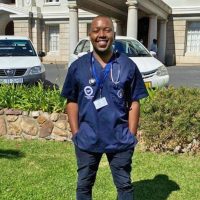
Langa Twala
2018: Studying towards his medical degree.
Present: Now a qualified doctor, Langa is a medical intern at the Pietermaritzburg Hospital Complex in KZN, currently in the paediatrics COVID ward at Grey’s Hospital.

Reon van der Merwe
2018: Studying towards
his Honours degree in Development Studies.
Present: After taking a gap year to teach English in China, he started a Master’s degree in International Relations and is currently finishing his dissertation which focusses on the place of human security principles in African Union peacebuilding missions.

Julia Hampton
2018: Finishing her Honours degree in Economics.
Present: Currently a Rhodes Scholar at Oxford University, doing her Master’s degree in Development Studies.

Tshegofatso Putu
2018: Completed her Honours degree in Development Economics.
Present: In 2021, she is completing her Master’s degree in Development Economics at Trinity College, Dublin.
Profiles of the tour facilitators
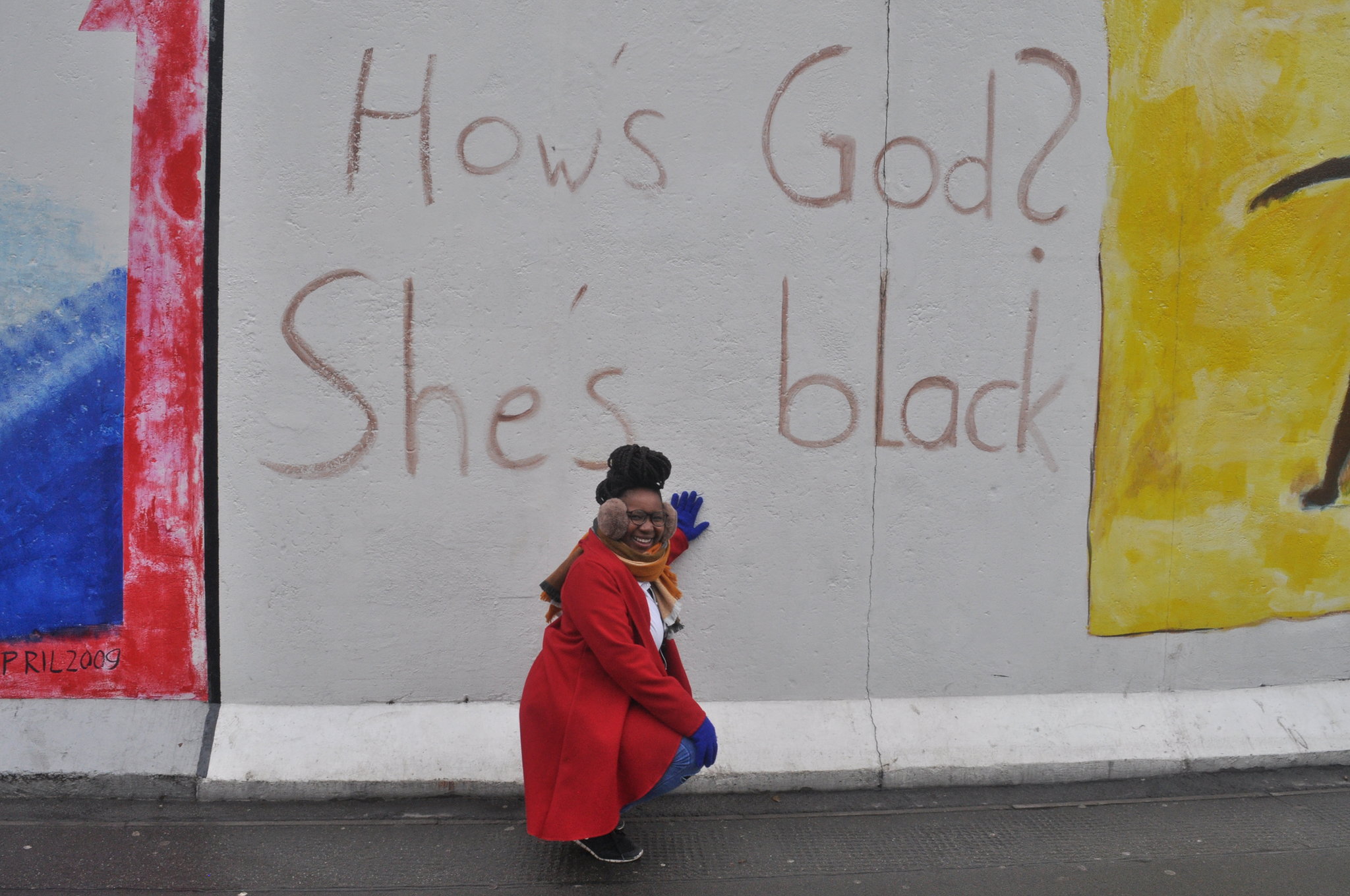
Ayanda Nxusani
Master’s student at the University of Cape Town, participated in the 2017 study tour and returned in 2018 as a facilitator. Ayanda provided emotional support, moderated conversations, and facilitated discussion on connections to South Africa. She recently welcomed a baby boy.
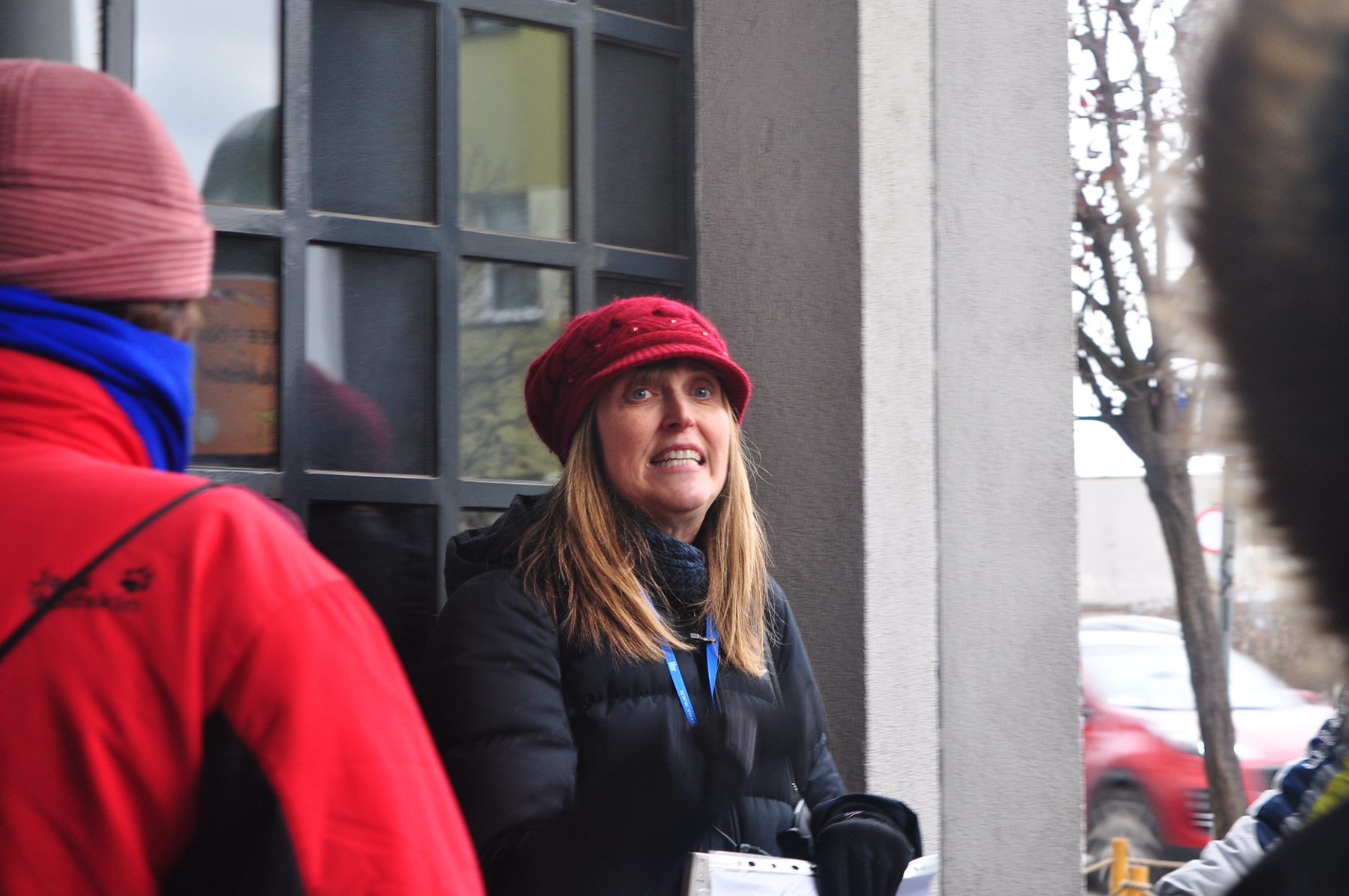
Tali Nates
A Holocaust and genocide historian who is the founder and director of the Johannesburg Holocaust & Genocide Centre. Tali organised, curated, and led this study tour to Germany and Poland. In 2020, Tali was the first South African to be awarded the prestigious Gratias Agit Award.
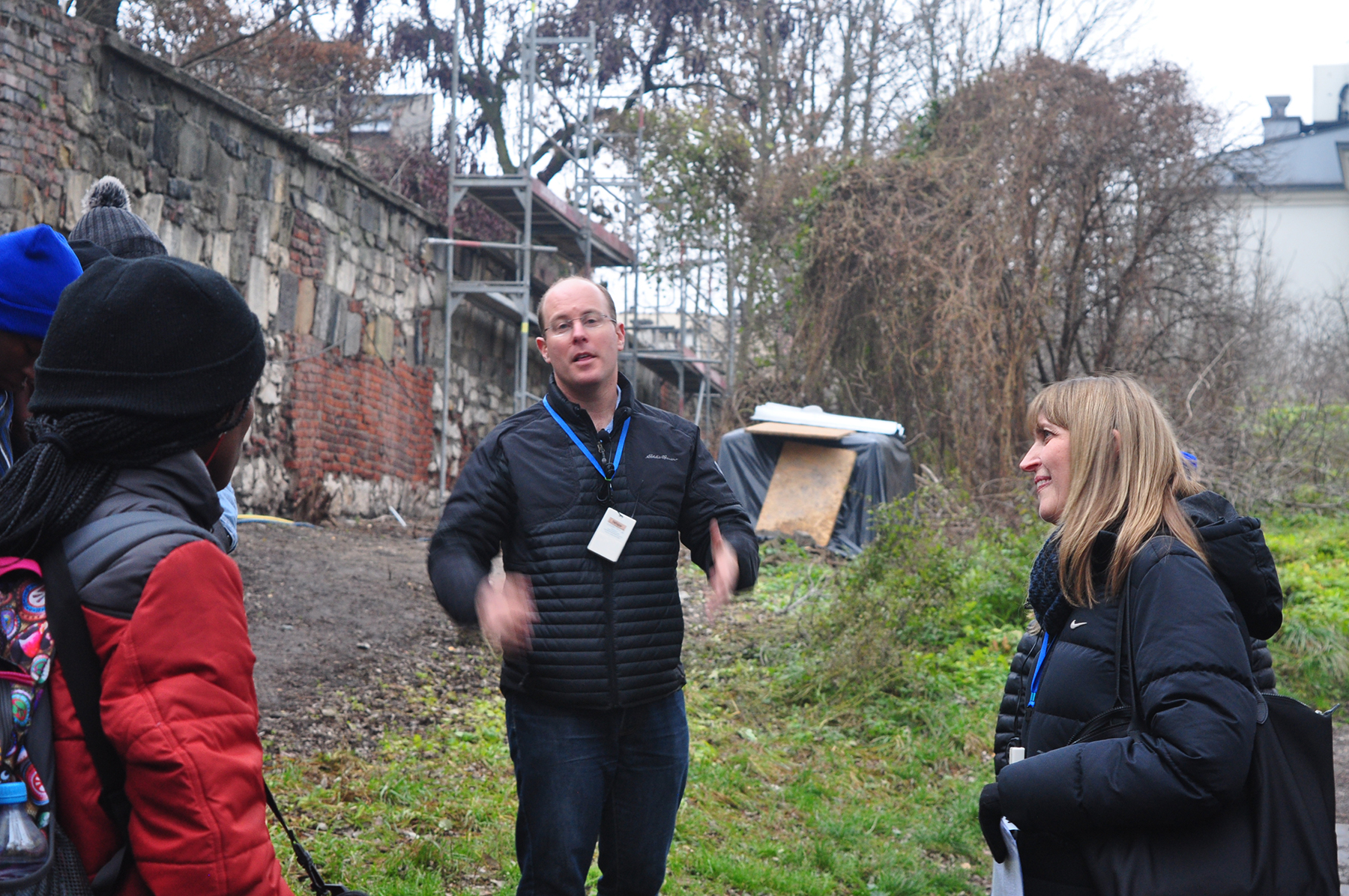
Adam Mendelsohn
Director of the Kaplan Centre for Jewish Studies and an Associate Professor of History at the University of Cape Town. He curated the tour and was its historian.
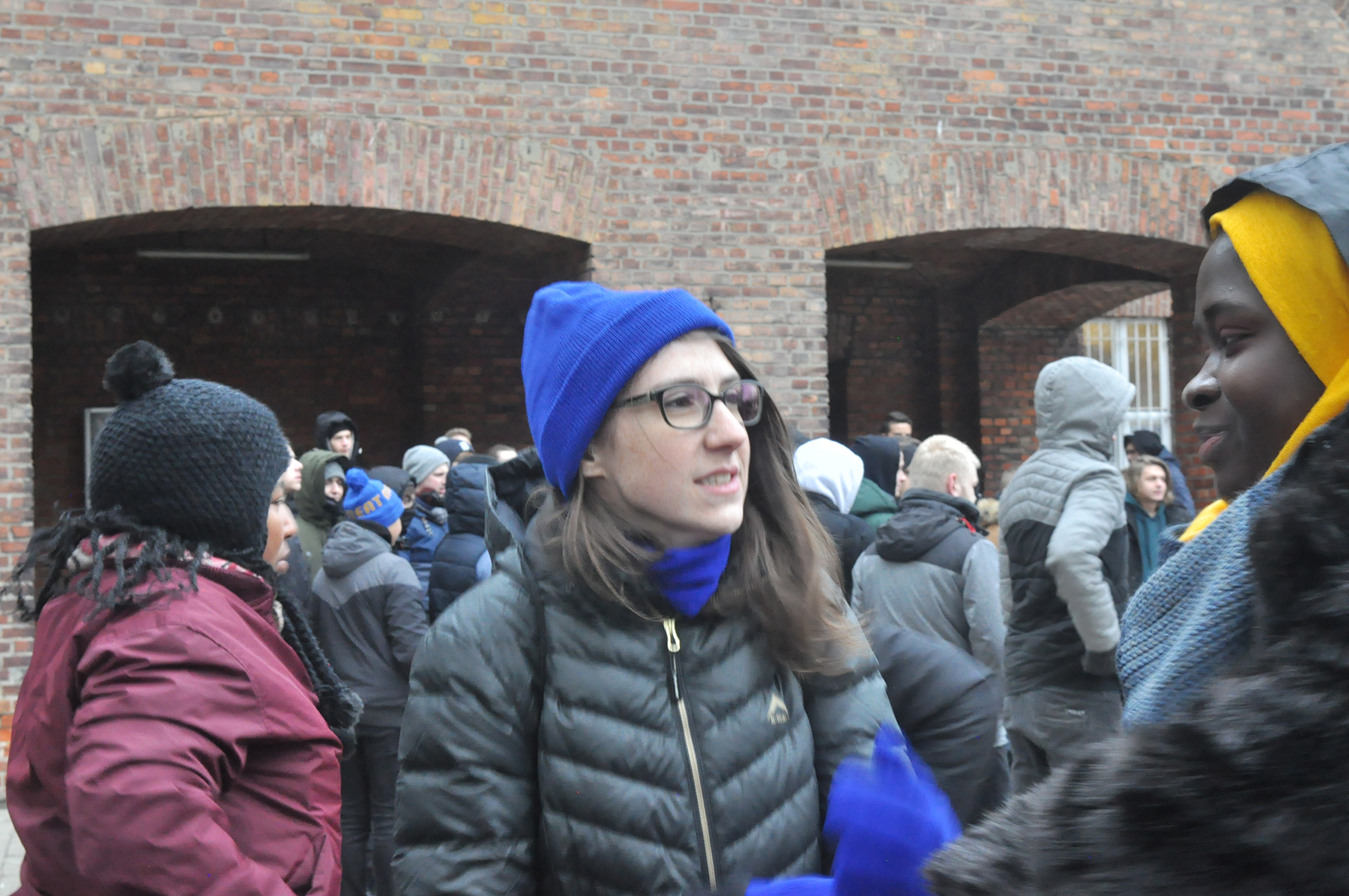
Kim Nates
Project management and marketing consultant in the education, museum, and NPO space. Kim managed the logistics and itinerary of the tour. She has coordinated numerous tours in Germany, Poland, Rwanda and South Africa for student and adult groups.
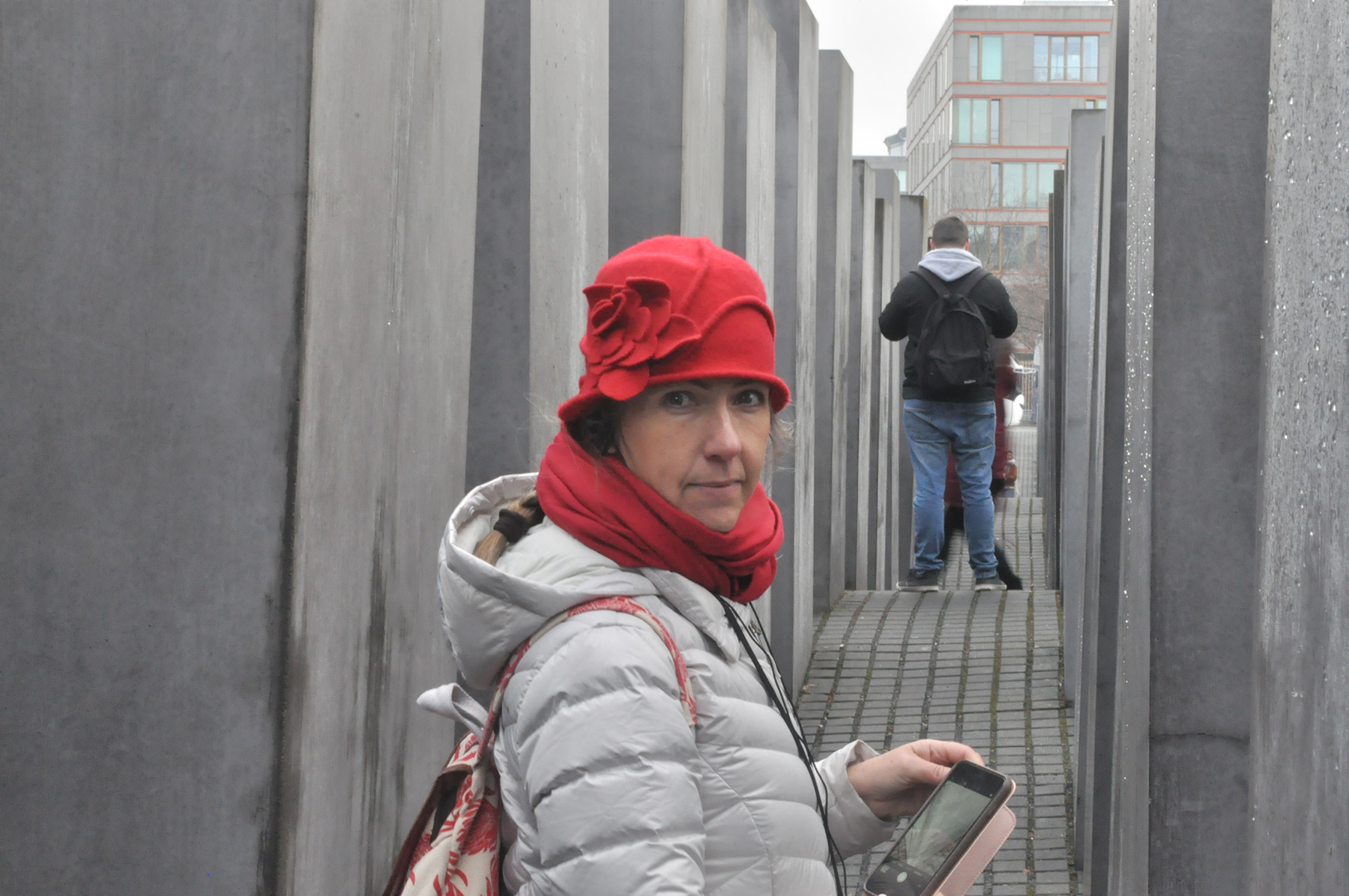
Sharon Rix
An organisational psychologist at Investec, provided psychological and emotional support to participants.
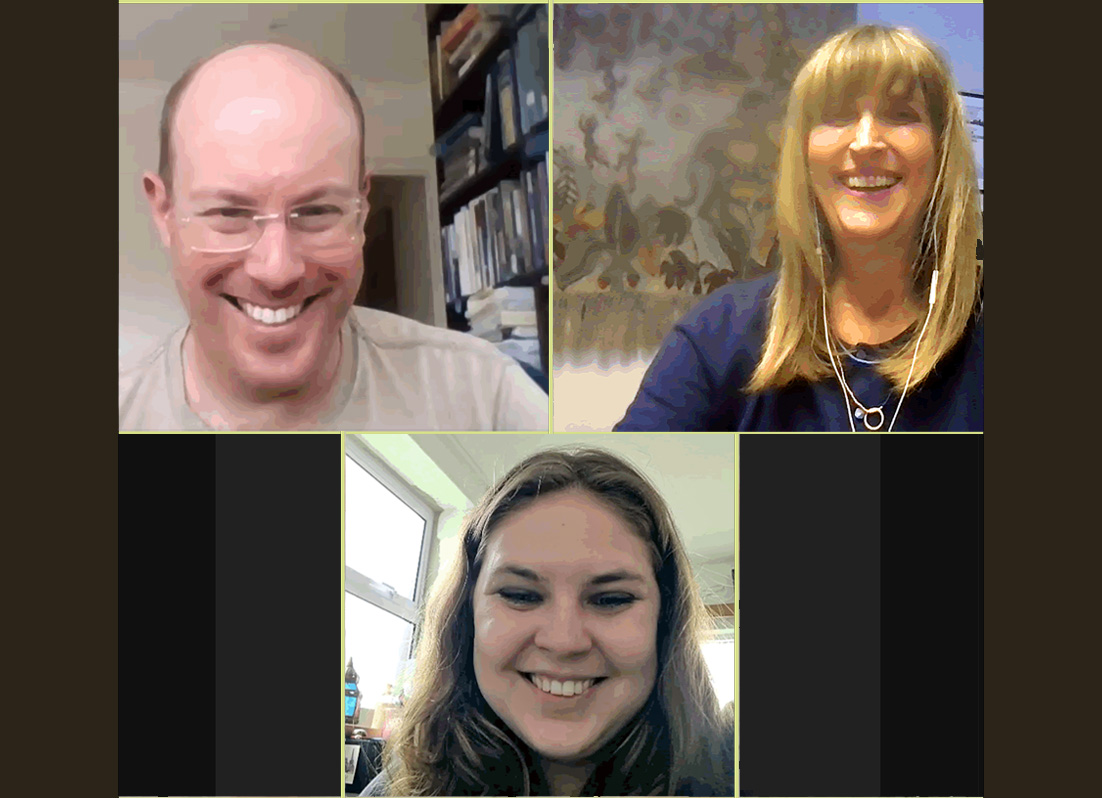
“Never could we imagined that in the 2 years since the tour, Covid would make our extensive traveling through Germany and Poland seem like a dream and make the tour impossible for successive study groups. In fact, the entire curation process for this exhibition was done remotely.”